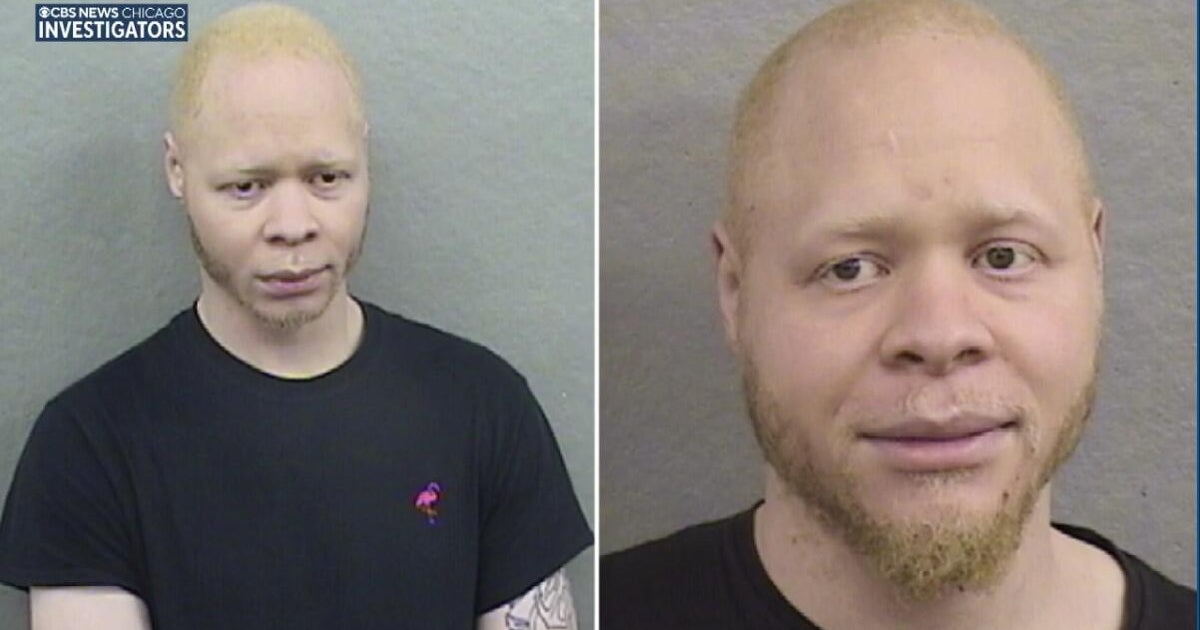Castle Rock teen with mental health issues arrested, accused of trying to join ISIS
An 18-year-old from Castle Rock who previously received mental health treatment was arrested and charged in connection to his alleged efforts to join the terrorist group ISIS.
When Davin Daniel Meyer was 17, a confidential informant reported Meyer to law enforcement because of what the informant viewed as "radical Islamic beliefs" and "violent intentions." After Meyer turned 18 last year, he began communicating with two FBI informants he thought were ISIS members.
Over the course of several months, Meyer obtained a passport and allegedly began preparing to travel to Turkey to meet other ISIS members and join their fight, according to the FBI. But when he tried to board his flight last week, he was arrested by FBI agents in the jetway. He's since been charged with attempting to provide material support or resources to a designated foreign terrorist organization.
Material support or resources, according to the Department of Justice, means any property or service, including currency, weapons, personnel, transportation, or other materials other than medicine or religious materials.
The FBI says Meyer wanted to join ISIS's fight in Syria and Iraq or, failing that, carry out an attack or attacks in the U.S., going as far as allegedly saying he'd be willing to kill himself.
According to the FBI, Meyer sent their informant or informants two videos of himself with his face covered, allegedly pledging allegiance to ISIS in those videos.
A history of mental health issues
In a 30-page criminal complaint, multiple sources show Meyer struggled with mental health issues prior to his arrest.
According to one person who reported him to law enforcement, Meyer attended an eight-month-long camp between 2021 and 2022 that focused on mental health and behavior treatment. "While there, he became more radical in his beliefs," the complaint reads.
Meyer appears to have a documented history of mental health issues that raise questions about how much he knew about his plans and his willingness and ability to carry them out. According to the FBI, Meyer had been diagnosed with autism spectrum disorder, ADHD, anxiety, depression and other related mental health issues.
Joni Tangeman, the FBI task force officer who lead the investigation into Meyer, wrote in the criminal complaint the following:
"Based on information provided by the individual as well as records I have reviewed in the investigation, I am aware that MEYER has previously received mental health treatment, including residential treatment programs. During treatment in 2021 and 2022, staff members reported that MEYER had said racist and hateful things to people of color, women, and Jews. The individual reported that MEYER refused to take any prescription medication prescribed by the psychiatrist because it would be against his Islamic religion, and he also refused to go to school or participate in online school programs. Records show that MEYER has received diagnoses of autism spectrum disorder; attention-deficit hyperactivity disorder; adjustment disorder with mixed anxiety and depressed mood; specific learning disorder with impairment in mathematics; and major depressive disorder, recurrent episode, moderate."
In conversations with at least one FBI informant, Meyer said he wasn't sure if his intentions were sincere. "I get a waswas sometimes but I'm not sure on how to distinguish between it and actual desire to do riyaa or something else insincere," he allegedly told the informant.
In Islam, "waswas," refers to perceived whispers from the devil or a devil-like figure, according to Islamic scholars, who often associate the perception with obsessive-compulsive disorder. "Riyaa," refers to showing off or faking virtuosity or good deeds without real intention.
Little else is publicly known about Meyer, likely due to his age. His social media presence appears limited and/or private. Two Facebook profiles under the name "Davin Meyer" from Colorado had no public posts since 2016 and 2014, respectively, a search on Instagram yielded too many results to know which profile or profiles may belong to the now-arrested Meyer and no one with that name or username appears on TikTok.
Family information also couldn't immediately be located for Meyer and he does not yet have an attorney assigned to him, according to court records.
The FBI's history with similar cases
In the post-9/11 world, there's been an abundance of news media reporting and investigations from advocacy groups on terrorism sting operations conducted by the FBI under questionable conditions.
According to a 2014 report from Human Rights Watch, "government agents identified vulnerable young men and individuals with mental or intellectual disabilities, and exploited their vulnerabilities. In some of those cases, informants met young men in online chat rooms and engaged them in discussions, sometimes urging them down the perceived path toward radicalization."
A 2010 CBS News report is among dozens of news articles raising questions about the veracity of the threats and devotion and ability of people targeted by the government in these plots to carry out their alleged plots. In at least some of the cases identified in news reporting and outside investigations, the FBI themselves provide money, weapons -- sometimes fake, other times not -- or other equipment or motivation for the people they then arrest.
RELATED: FBI Terror Stings: Entrapment or Prevention?
"When the government supplies a fake bomb and then thwarts the plot, this is insanity. This is grandstanding," Susanne Brody, one of the defense attorneys in a case involving a man charged with planning to detonate a car bomb in Portland, told CBS News at the time when asked about the FBI's use of undercover stings.
Brody said the tactic requires extraordinary amounts of time and money and can ensnare hapless people, not hardened terrorists.
The Department of Justice declined to comment on Meyer's case Tuesday or on questions regarding this history of alleged entrapment. The FBI's Denver Division said it wouldn't comment on Meyer's case, citing the open nature of that criminal case. Additional questions about the FBI's history of alleged entrapment go beyond the scope of work at the Denver Field Office.
In that 2014 Human Rights Watch report, the organization's research noted that the FBI not only targets people with intellectual or mental disabilities but also "the indigent" -- those experiencing financial hardship.
In his criminal complaint, Meyer communicated differing financial situations at various times to at least one FBI informant. In February, for example, he characterized himself as being financially stable and able to purchase plane tickets to his ultimate destination, but a month later, he said work was slow and he was seeking work.
In 2018, former FBI agent Terry Albury was convicted of leaking classified documents to the news outlet The Intercept and sentenced to four years in prison. He served that sentence in Federal Correctional Institution, Englewood in Colorado.
Albury's defense attorneys had asked for probation, saying he acted patriotically and was morally conflicted by the FBI's counterterrorism policies that he viewed as racial profiling.
"I helped destroy people," he told the New York Times.
Meyer remains in custody Tuesday. If convicted, he could face up to 20 years in prison, a $250,000 fine or a combination of prison time and fines.
UPDATE: Mom of Castle Rock teen accused of trying to join Islamic State blames FBI "encouragement"








